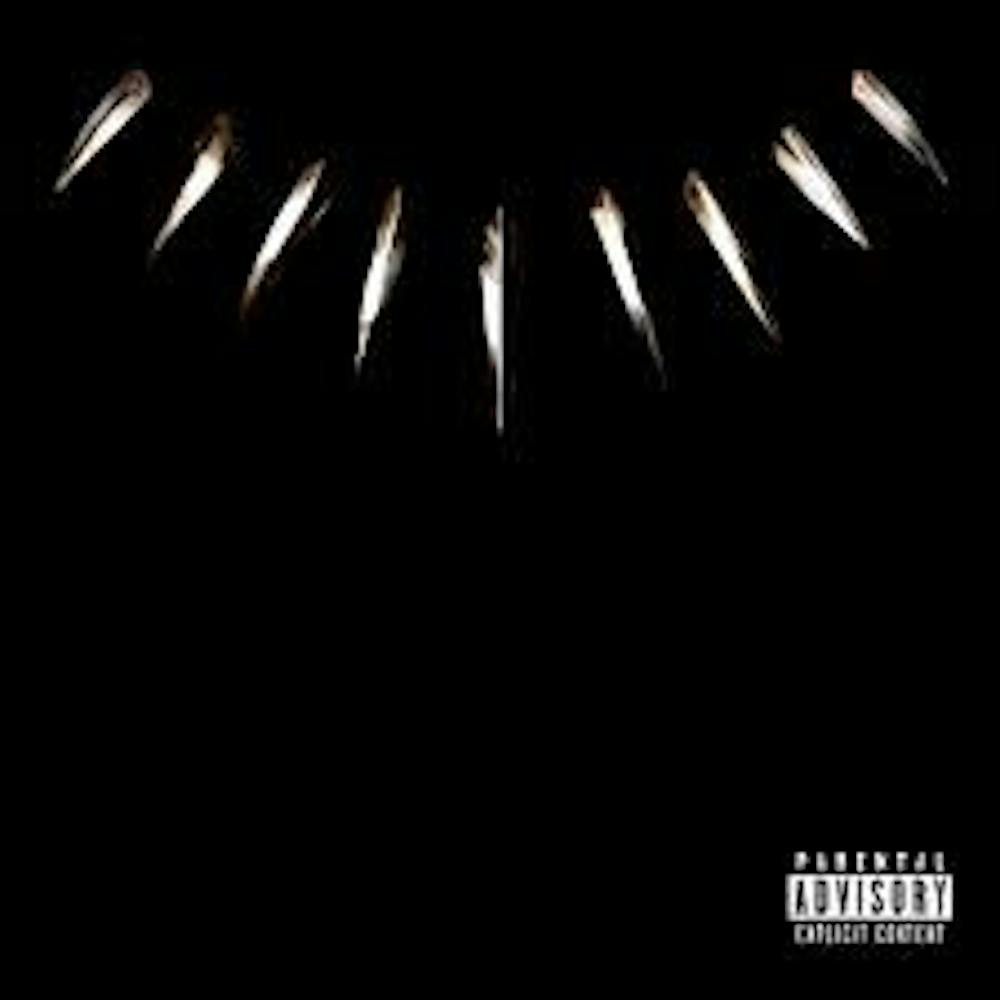By Nadir Roberts
Reviews Editor
Before fans were able to see the highly anticipated and critically acclaimed “Black Panther” film, they were gifted with “Black Panther: The Album.” The 14-song soundtrack was made with love, seasoned with Lawry’s, then slow cooked with culture — and it came out perfectly.
The project features several members of Kendrick Lamar’s Top Dawg Entertainment record label, a variety of A-list artists and some lesser known artists, creating a dark, mystical sound that musically encaptures the essence of the “Black Panther” universe.
Lamar, the album’s curator, puts his best foot forward in this album, showing off his versatility as an artist by incorporating a range of musical tastes.
The album includes western flows from TDE artists like Ab-Soul and Schoolboy Q, as well as well-versed southern trap music from Future and Travis Scott and the melodic vocals of Khalid, The Weeknd, Jorja Smith and SZA. More obscure artists featured on the album enhanced the music to its fullest extent, making listeners feel as if they were living in Wakanda, reveling in their technologically advanced lifestyle.
The combination album and soundtrack to the movie was released Feb. 9, giving fans a solid week to bump to their favorite tracks before the movie came out on Thursday, Feb. 16.
The album sonically represents what the movie theatrically showcases — a surfeit but appreciated amount of cultural references, black love, black struggle, black excellence and most importantly, black royalty.
Lamar opens the album with “Black Panther,” with lyrics full of references to characters and plot points from the movie.
The album’s first song tells the story of the power and status T’Challa has, as Lamar puts it, the “king of the shooters, looters, boosters and ghettos poppin’, king of the past, present, future, my ancestors watchin’.”
Lamar rapped the lines from the point of view of T’Challa. The album goes back and forth between T’Challa and Killmonger, the antagonist of the film.
The track “King’s Dead” tells the story of how Killmonger challenged Black Panther’s kingship from Killmonger’s perspective.
“Who am I? Not your father, not your brother, not your reason, not your future,” Lamar rapped.
It is also possible that Lamar was rapping about the idea that he is the king of rap in the first track, which could be true, given his impressive run at the 2018 Grammy Awards.
After Lamar won five out of seven nominations including best rap song, best rap album and best rap performance, Lamar was chosen to curate this incredible album, and he did so masterfully.
For Ryan Coogler, the director of “Black Panther,” selecting Lamar must have been a no-brainer. Lamar is one of the biggest names in not only hip-hop, but within the black community and American society in general. It makes sense that Lamar should lead the melanated march of any moviegoer that listens to the soundtrack on the way to the theatre.
For one to truly understand the many concepts, messages and meanings in “Black Panther: The Album,” they must see the movie. The movie and soundtrack go hand-in-hand and complement each other perfectly, tying up any loose ends that the listener had while scrutinizing each track prior to seeing the film.
“Black Panther: The Album” captured the accuracy of the Marvel comics it’s based on and made it modern and culturally enriching. The film and soundtrack just hint at what is truly in store for 2018 for film, music and black empowerment.







